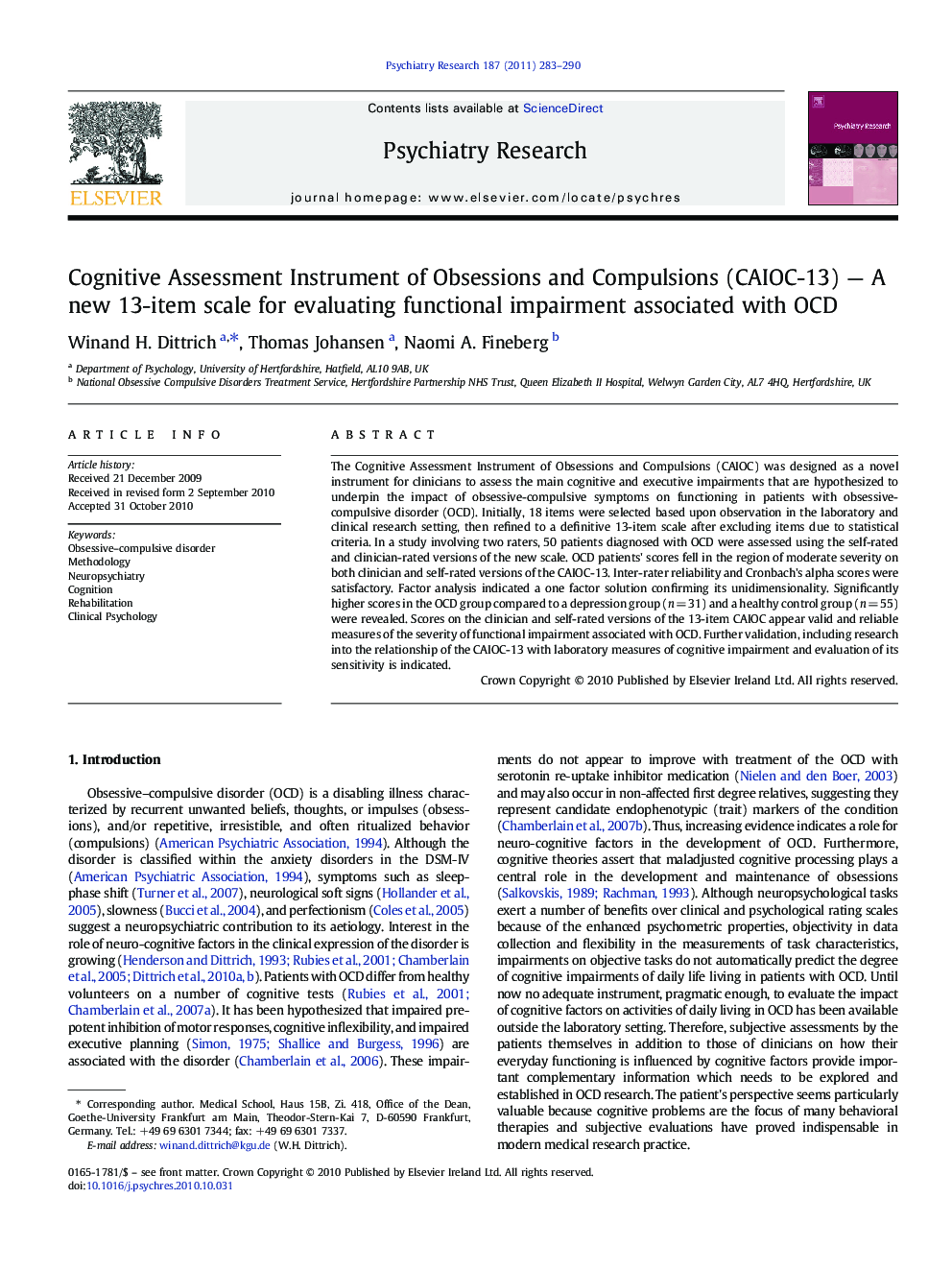| Article ID | Journal | Published Year | Pages | File Type |
|---|---|---|---|---|
| 6816516 | Psychiatry Research | 2011 | 8 Pages |
Abstract
The Cognitive Assessment Instrument of Obsessions and Compulsions (CAIOC) was designed as a novel instrument for clinicians to assess the main cognitive and executive impairments that are hypothesized to underpin the impact of obsessive-compulsive symptoms on functioning in patients with obsessive-compulsive disorder (OCD). Initially, 18 items were selected based upon observation in the laboratory and clinical research setting, then refined to a definitive 13-item scale after excluding items due to statistical criteria. In a study involving two raters, 50 patients diagnosed with OCD were assessed using the self-rated and clinician-rated versions of the new scale. OCD patients' scores fell in the region of moderate severity on both clinician and self-rated versions of the CAIOC-13. Inter-rater reliability and Cronbach's alpha scores were satisfactory. Factor analysis indicated a one factor solution confirming its unidimensionality. Significantly higher scores in the OCD group compared to a depression group (n = 31) and a healthy control group (n = 55) were revealed. Scores on the clinician and self-rated versions of the 13-item CAIOC appear valid and reliable measures of the severity of functional impairment associated with OCD. Further validation, including research into the relationship of the CAIOC-13 with laboratory measures of cognitive impairment and evaluation of its sensitivity is indicated.
Keywords
Related Topics
Life Sciences
Neuroscience
Biological Psychiatry
Authors
Winand H. Dittrich, Thomas Johansen, Naomi A. Fineberg,
